Titanium CNC Machining Services
Choose AT-Machining’s engineering expertise for top-performing Titanium CNC components. Power ahead of the competition with our innovative solutions and experience the gains for your company firsthand.
- Certified Materials
- Factory Price
- No Minimum Order
- Fast Turnaround
Save 30% cost on average!

AT-Machining's Capacity and Service for Titanium CNC machining
AT-Machining offers the ultimate solution for reliable and precise Titanium components.
Our ISO9001-certified machine shop guarantees unbeatable accuracy on custom designs, from speedy prototyping to large-scale end-use parts production, ensuring fast turnaround times in a dependable environment. Our experienced professionals specialize in CNC services, including milling, turning, and lathe work. We provide tailor-made pricing to match your product’s development stages for maximum value with minimal timeframes.
Additionally, our knowledgeable staff provides personalized support and guides your projects every step of the way to ensure success.
| Tolerances | Wall Thickness | Max Part Size | Lead Time |
|---|---|---|---|
| The achievable machining tolerances depend on the specific type of Titanium being used, but typically a tolerance of 0.005 inches can be achieved. | It is possible to achieve a minimum wall thickness of 0.03 inches (0.8mm), although this may vary based on the ratio of wall thickness to planar dimension as well as the specific type of titanium being used. | The maximum part size that can be realized is 2000 x 800 x 1000 mm. | The minimum lead time for commonly used titanium is 7 days, but this may vary depending on the specific type of titanium and whether the parts are being manufactured internationally. |

About The Material
Titanium is a lustrous transition metal with a silver color, low density, and high strength. Titanium is known for its excellent corrosion resistance, biocompatibility, and non-magnetic properties, which make it an ideal material for various applications, including aerospace, military, medical, and industrial uses.
It is also commonly used in the production of high-performance alloys, such as titanium alloys, which have superior strength-to-weight ratios compared to other metals.
- High Strength
- Corrosion Resistance
- Biocompatibility
- Non-Magnetic
- Heat Resistance
- Ductility
The Most Common Grade of Titanium for CNC Machining
The choice of grade of titanium for CNC machining will depend on the specific requirements of the application, such as strength, corrosion resistance, biocompatibility, or cost. It is important to consult with a knowledgeable supplier or manufacturer to determine the best grade of titanium for your particular project.
Comparison of common Titanium Alloys
Titanium suitable for your project can always be found at AT-Machining
| Hardness Rockwell 30T | Tensile Strength Ultimate | Tensile Strength, Yield | Elongation at Break | Tensile Modulus | Feature | |
|---|---|---|---|---|---|---|
| Grade 1 Titanium | 70 HR30T | 240 MPa | 170 MPa | 24% | 105 GPa | High Corrosion Resistance |
| Grade 2 Titanium | 80 HR30T | 345 MPa | 275 MPa | 20% | 105 GPa | Excellent Strength-to-Weight Ratio |
| Grade 5 Titanium | 36-38 HR30T | 880 MPa | 830 MPa | 10% | 114 GPa | High Strength |
| Grade 9 Titanium | 80 HR30T | 900 MPa | 830 MPa | 15% | 118 GPa | Excellent Balance of Strength, Toughness, and Workability |
| Grade 23 Titanium | 40-45 HR30T | 860 MPa | 790 MPa | 10% | 114 GPa | High Biocompatibility |
AT-Machining
You Design It, We'll Make It.
CNC Machined Titanium Applications
CNC-machined Titanium parts are highly versatile and find applications in a wide range of industries, including aerospace, automotive, medical, and defense. The precision and accuracy of CNC machining processes allow for the production of intricate and complex titanium parts with tight tolerances, which are critical for many applications.
Surface Finishes For CNC Machined Titanium Parts
AT-Machining can provide the perfect finishing touch to your CNC-machined titanium parts with a range of Anodizing, Polishing, Passivation, Bead Blasted, Powder Coat, and Plating options. Each finish offers its own advantages – so make sure you select the one that meets all your requirements!

Anodizing
Titanium anodizing is an electrochemical process that creates a controlled oxide layer on the surface of titanium, providing increased corrosion resistance, wear resistance, and the ability to be dyed for aesthetic purposes

Polishing
Titanium polishing is a surface finishing process that uses abrasives to remove imperfections and create a smooth, shiny surface on titanium parts.

Passivation
Titanium passivation is a surface treatment process that involves the formation of a thin oxide layer on the surface of titanium to improve its corrosion resistance and biocompatibility.

Bead Blasted
Titanium bead blasting is a surface treatment process that involves shooting small glass or ceramic beads at high speed against a titanium surface to create a uniform, matte finish with improved texture and reduced reflectivity.

Powder Coat
Powder coating is a process of applying a protective and decorative coating to titanium surfaces by spraying a dry powder onto the surface and then baking it in a high-temperature oven to create a durable and corrosion-resistant finish.

Plating
Process of applying a thin layer of metal onto the surface of the Titanium to improve its appearance, protect it from corrosion and wear, and enhance its conductivity or other properties.
Gallery of CNC machined Titanium parts
Our team provides top-notch manufacturing services, catering to customers in a variety of different industries. We excel at taking on projects that range from complex medical devices and aerospace tech to smaller-scale hardware startups or marine robotics – no job is too big or small!
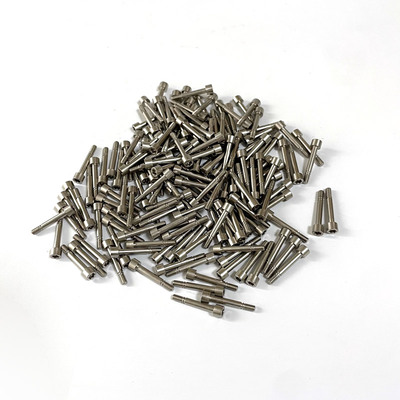
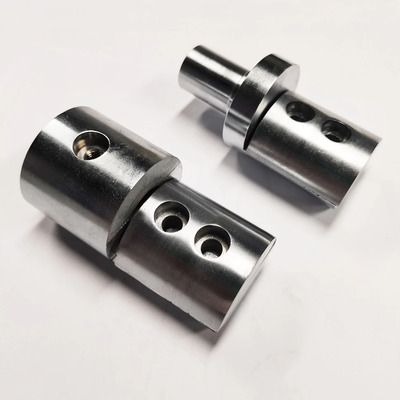
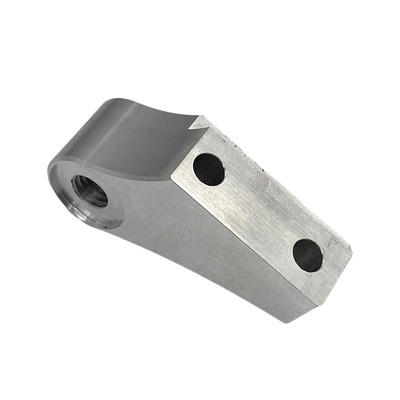
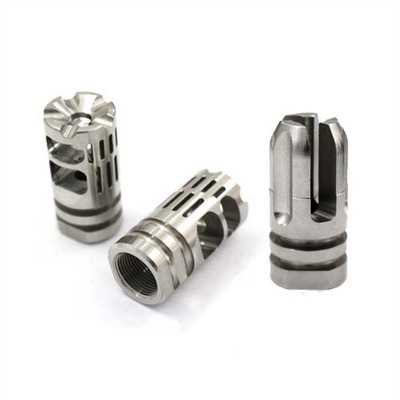
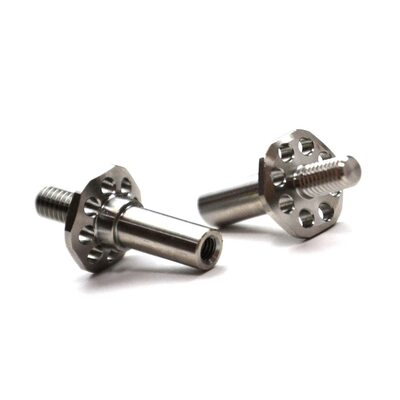
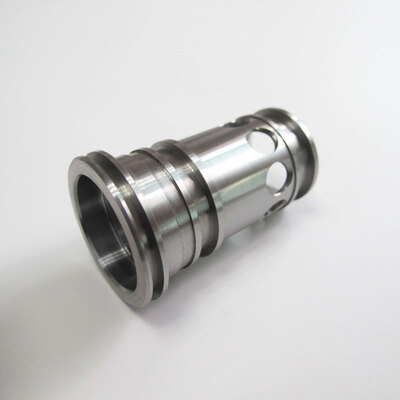
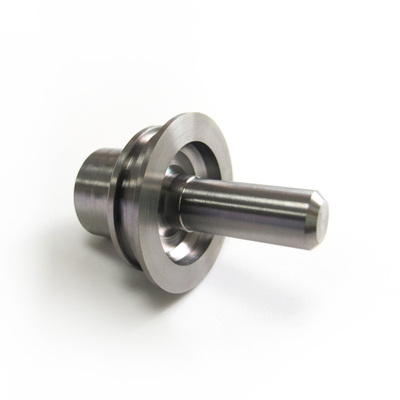
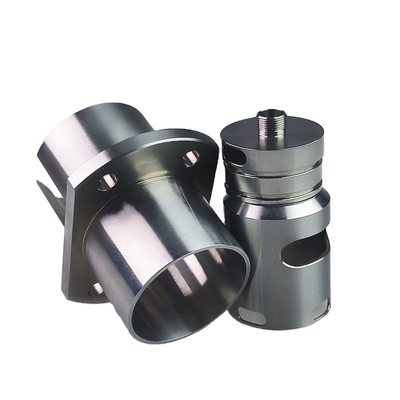
Why Choose AT for Custom CNC Machining?
Saving Your Cost
You will save 30-50% of the cost because of our efficient production capacity and cost control.
Quality Assurance
As an ISO 9001:2015 certificated manufacturing company, we offer SGS, RoHS, material certifications, and inspection report for our customers.
On-demand Production
Our CNC milling services will support you from 1 pcs to 10k+ pcs, no matter prototype, low volume manufacture, or mass production.
High Precision Tolerances
Offering tolerances range from +/-0.001′′ to 0.005′′, depending on client specifications. We are experts in producing custom components.
Material Selection
Choose from 50+ engineering-grade plastics and metals, including ABS, polycarbonate, nylon, PEEK, aluminum, stainless steel, titanium, and Steel for diverse part applications and industries.
Fast and Reliably Delivery
Experience dependable and punctual delivery of your products from our CNC facility strategically located in Shenzhen, China, near major shipping ports for seamless transportation and peace of mind.
CNC Machining Titanium FAQs
What are the challenges of CNC machining titanium?
- High-cutting forces: Titanium is a very strong and tough material, which requires high cutting forces to remove material. This can cause tool wear and breakage, as well as put a strain on the machine and its components.
- High heat generation: The high cutting forces generated during machining can also lead to high temperatures, which can cause thermal expansion and distortion of the workpiece. This can also cause tool wear and reduce the overall precision of the machining process.
- Material galling: Titanium has a tendency to adhere to cutting tools during machining, which can lead to galling and built-up edge formation. This can reduce tool life and affect the quality of the machined surface.
What is the cost of CNC machining titanium?
The cost of CNC machining titanium can vary depending on a variety of factors such as the complexity of the part, the size of the part, the tolerances required, the number of parts being produced, and the grade of titanium used.
Generally, titanium is a more expensive material than many other metals, which can contribute to the higher cost of CNC machining titanium parts. Additionally, the challenges associated with machining titanium, such as the wear and tear on tools, can also increase the cost.
What are the most common titanium alloys used in CNC machining?
Grade 5 titanium, also known as Ti6Al4V, is a popular choice for CNC machining due to its excellent strength-to-weight ratio, high corrosion resistance, and good machinability. However, other grades such as Grade 2 and Grade 9 can also be suitable depending on the specific requirements of the part. Ultimately, the selection of the best titanium alloy for CNC machining will depend on factors such as the part’s size, complexity, strength requirements, and corrosion resistance needs.
What types of cutting tools are used for machining titanium?
Carbide inserts: These are the most commonly used cutting tool for titanium machining due to their high wear resistance and toughness.
High-speed steel (HSS) tools: These tools are suitable for lighter machining operations and are less expensive than carbide inserts.
Ceramic inserts: These are very hard and can withstand high temperatures, making them suitable for high-speed machining of titanium.
Polycrystalline diamond (PCD) tools: These are extremely hard and wear-resistant, making them suitable for high-precision machining of titanium.
